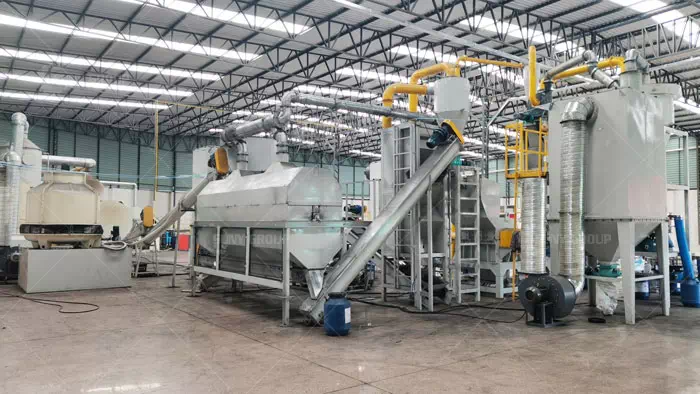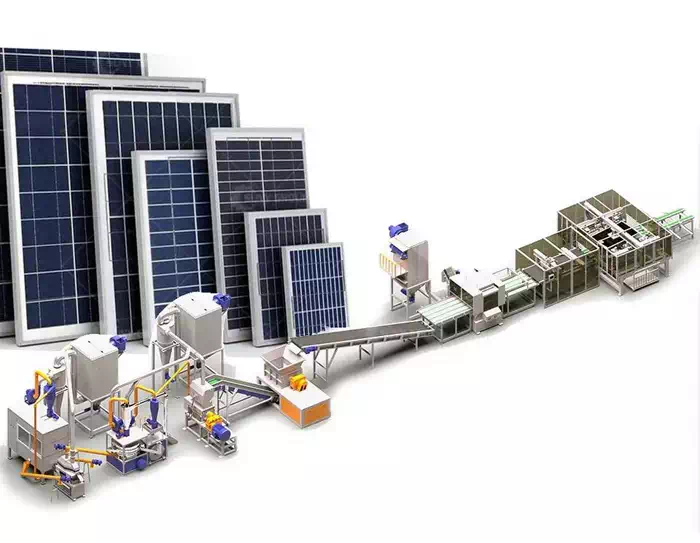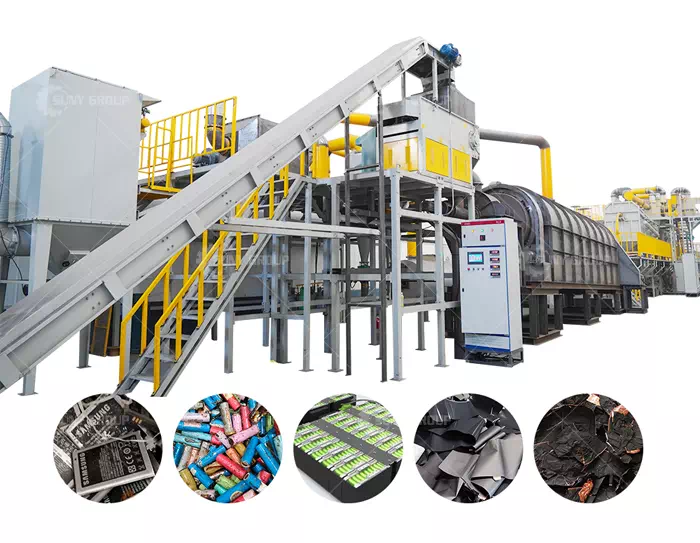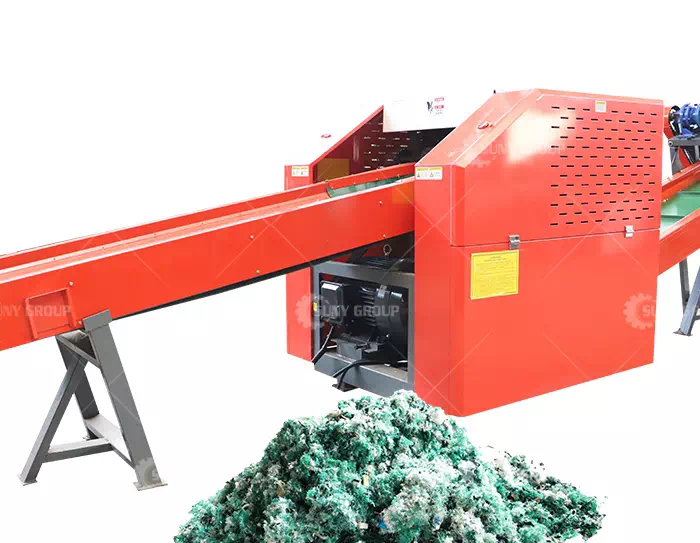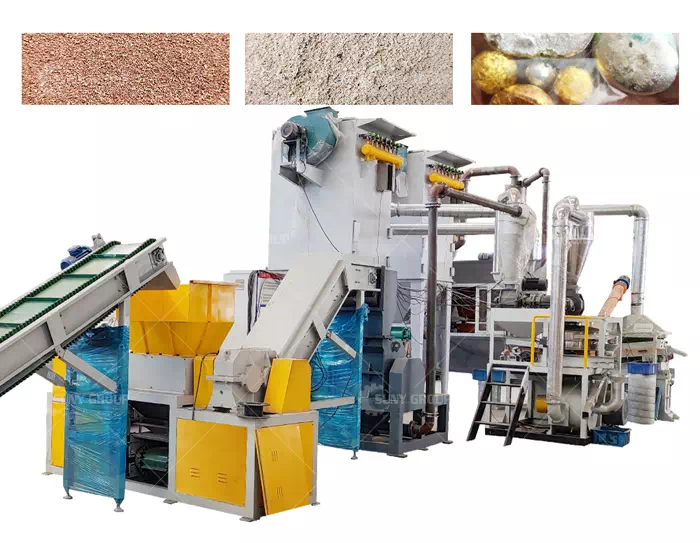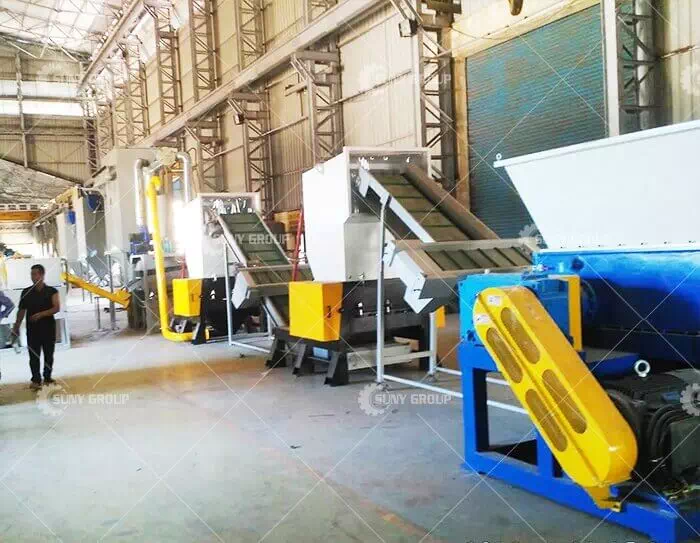How to Start a Lithium-ion Battery Recycling Business?
With the booming development of the global new energy vehicle industry and the promotion of renewable energy technologies, lithium-ion batteries (Li-ion batteries), as one of the core power sources, have become an indispensable part of modern society. However, with the large-scale application of Li-ion batteries and the gradual end of their service life, the recycling of Li-ion batteries has gradually attracted people's attention. Recycling of lithium batteries is not only crucial for environmental protection but also has huge economic potential.
Waste Lithium Battery Recycling Line
Lithium batteries contain a variety of hazardous substances, such as lithium, cobalt, nickel, lead, manganese, and other metals, which may cause serious pollution to the environment if not properly recycled and treated. With the sharp increase in the use of lithium batteries, the accumulation of battery waste is a growing problem, especially in the field of electric vehicles and consumer electronics.
In addition, the informal disposal of lithium batteries may lead to a waste of resources. Metals such as lithium, cobalt, and nickel have limited reserves on earth, and they are key raw materials for battery manufacturing. By recycling valuable materials from lithium batteries, it is possible to recycle resources and reduce dependence on natural resources.
Advanced Lithium Battery Recycling Technology
The physical recycling method is currently the most widely used technology in the field of lithium battery recycling. It dismantles waste lithium batteries into different parts and separates the valuable materials from them through mechanical crushing, electromagnetic sorting, and other physical means. For example, the battery casing is dismantled first, and then the metallic materials (such as aluminum and copper) in the battery are separated from the hazardous materials (such as electrolytes) through crushing, screening, and sorting techniques.
The advantages of physical recycling method are its higher recycling efficiency and lower energy consumption, and it is also equipped with perfect waste gas treatment equipment, which can avoid causing secondary pollution.
Advanced lithium battery recycling equipment
1. Lithium battery dismantling equipment
Lithium battery dismantling equipment is the most basic and important part of the recycling process. It dismantles waste batteries through mechanized equipment, removing the battery shell, and electrolyte, and separating the internal electric core. Common dismantling equipment includes a battery crusher, battery pre-treatment system, and so on.
These equipments can improve dismantling efficiency, reduce manual operation and improve labor safety. Battery crusher is usually equipped with multiple screens and sorting systems, which can realize precise separation of different materials.
2. Physical sorting equipment
Physical sorting equipment is mainly used to separate the disassembled lithium battery parts according to different physical properties. Common equipment includes a vibrating screen, magnetic separator, electromagnetic separator, and so on. These equipments separate valuable metals such as aluminum, copper, cobalt, lithium, etc. from other impurities through different principles to provide raw materials for subsequent chemical recycling.
The level of sorting efficiency directly affects the recovery effect, so when selecting equipment, we should consider the sorting precision, processing capacity energy consumption, and other factors.
3. Exhaust gas treatment equipment
The lithium battery recovery process will produce a certain amount of exhaust gas, especially in the battery crushing, heat treatment, and other links. In order to avoid harmful gas pollution of the environment, exhaust gas treatment equipment (such as adsorption towers, condensing devices, etc.) is essential. These equipment can effectively purify the exhaust gas and ensure that the recycling process meets the environmental requirements.
With the popularization of new energy vehicles and consumer electronics, the life cycle of lithium batteries has become shorter, and the number of used batteries has increased dramatically. The demand for lithium battery recycling will continue to climb, driving the rapid expansion of the market scale. Carrying out lithium battery recycling business can not only contribute to environmental protection but also bring lucrative economic returns for enterprises. With the continuous progress of lithium battery recycling technology and the innovation of recycling equipment, SUNY GROUP is unanimously committed to the recycling solution of end-of-life lithium batteries, if you have the need, please feel free to contact us for consultation.
Recommend products
CONTACT US:
If you have any requirement or suggestion, please fill in the form and send to us, thanks!E-mail:sunymachine@gmail.com | Whatsapp:+8613674945231


